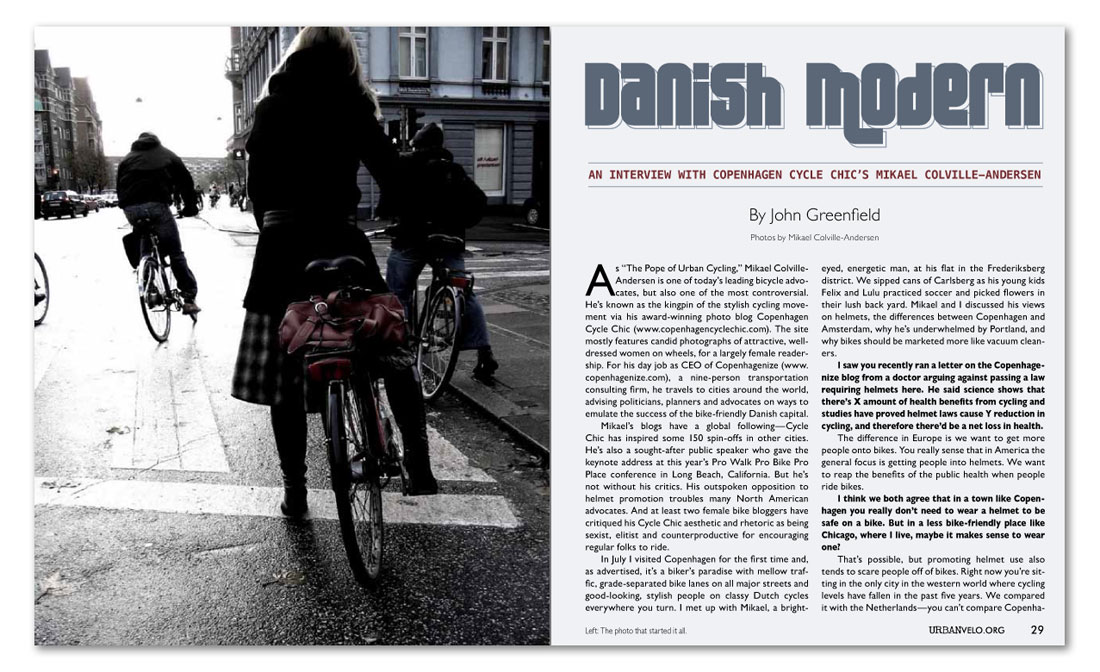


Danish Modern
John Greenfield
As “The Pope of Urban Cycling,” Mikael Colville-Andersen is one of today’s leading bicycle advocates, but also one of the most controversial. He’s known as the kingpin of the stylish cycling movement via his award-winning photo blog Copenhagen Cycle Chic (www.copenhagencyclechic.com). The site mostly features candid photographs of attractive, well-dressed women on wheels, for a largely female readership. For his day job as CEO of Copenhagenize (www.copenhagenize.com), a nine-person transportation consulting firm, he travels to cities around the world, advising politicians, planners and advocates on ways to emulate the success of the bike-friendly Danish capital.
Mikael’s blogs have a global following—Cycle Chic has inspired some 150 spin-offs in other cities. He’s also a sought-after public speaker who gave the keynote address at this year’s Pro Walk Pro Bike Pro Place conference in Long Beach, California. But he’s not without his critics. His outspoken opposition to helmet promotion troubles many North American advocates. And at least two female bike bloggers have critiqued his Cycle Chic aesthetic and rhetoric as being sexist, elitist and counterproductive for encouraging regular folks to ride.
In July I visited Copenhagen for the first time and, as advertised, it’s a biker’s paradise with mellow traffic, grade-separated bike lanes on all major streets and good-looking, stylish people on classy Dutch cycles everywhere you turn. I met up with Mikael, a bright-eyed, energetic man, at his flat in the Frederiksberg district. We sipped cans of Carlsberg as his young kids Felix and Lulu practiced soccer and picked flowers in their lush back yard. Mikael and I discussed his views on helmets, the differences between Copenhagen and Amsterdam, why he’s underwhelmed by Portland, and why bikes should be marketed more like vacuum cleaners.
I saw you recently ran a letter on the Copenhagenize blog from a doctor arguing against passing a law requiring helmets here. He said science shows that there’s X amount of health benefits from cycling and studies have proved helmet laws cause Y reduction in cycling, and therefore there’d be a net loss in health.
The difference in Europe is we want to get more people onto bikes. You really sense that in America the general focus is getting people into helmets. We want to reap the benefits of the public health when people ride bikes.
I think we both agree that in a town like Copenhagen you really don’t need to wear a helmet to be safe on a bike. But in a less bike-friendly place like Chicago, where I live, maybe it makes sense to wear one?
That’s possible, but promoting helmet use also tends to scare people off of bikes. Right now you’re sitting in the only city in the western world where cycling levels have fallen in the past five years. We compared it with the Netherlands—you can’t compare Copenha-